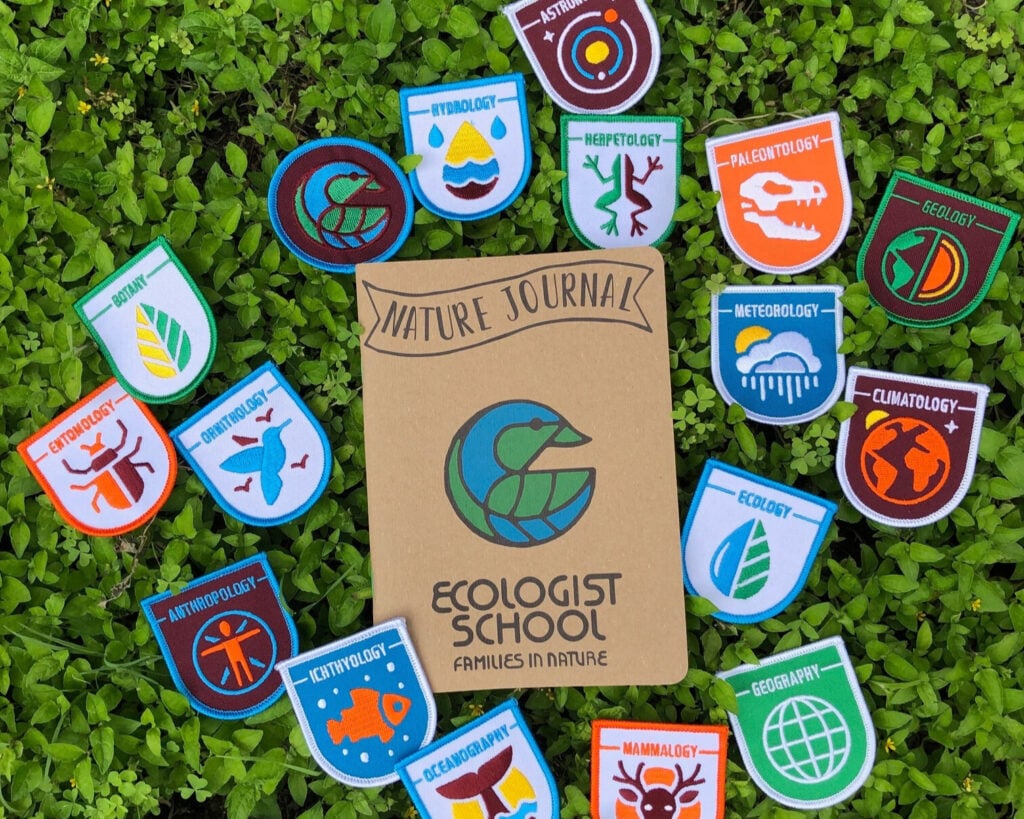Choose Learning Type ▼




Badges can be earned through hands-on experiences within each of the 16 branches of science, or “Science Slices.” You can earn a badge in each branch of science by doing four activities in these categories. We also encourage participants to keep a Nature Journal to record their memories, and to express themselves creatively through writing or drawing after each activity. We recommend that each child (and parent if they’d like) write or draw in a journal after each activity, with expectations of your children that match their age (the goal is self-expression, not perfection).

The Ecologist School Pocket Guide: TSBVI edition is a collaboration between Families in Nature and the Texas School for the Blind & Visually Impaired as an effort to help our community learn more about the TSBVI campus, while getting outside into nature together! This booklet has 80 lessons across 16 different branches of science to help you play, learn, and volunteer on campus!
It is our vision to inspire all families to fall in love with nature and foster the next generation of conservationists. Becoming a member of Families in Nature will give your family the opportunity to have adventures in nature, experience field science, develop as youth conservation leaders, and make memories that will last a lifetime. Memberships are free for everyone.